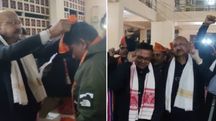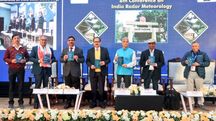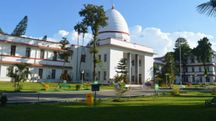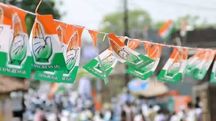Citizenship Amendment Act's Passage Proves Delhi's 'Insensitivity' towards NE?
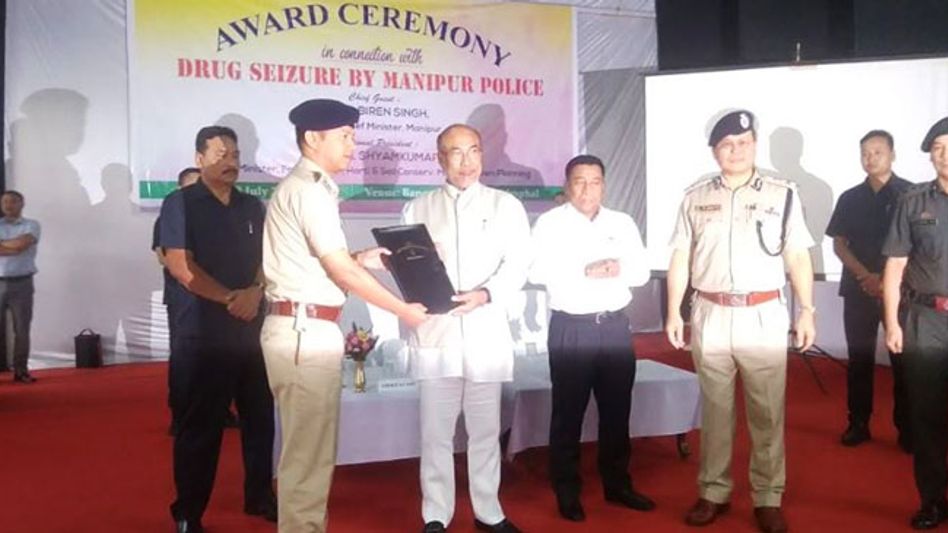 Representational image: Protest against the CAB
Representational image: Protest against the CABBy Ronika Chanamthabam
The Citizenship Amendment Act has created a dystopia-like situation in many parts of India. The ruckus which has followed is of issues mostly concerning the fact that this is the first “Religious” Act, and about the Secular spirit of India (singling out the Muslim Community and selecting six communities from Pakistan, Bangladesh, and Afghanistan).
The Citizenship Amendment Act, in brief, seeks to give citizenship to these selected six communities who have entered India (having faced religious persecution) on or before 31st December 2014, through the naturalization process.
While most of the debates in both the Houses and of experts in media and elsewhere focuses mainly on why Muslims are singled out and why only three countries; about NRC across India, whether it is Constitutional or Secular; Article 14, or of Tamil migrants, Uighur Muslims and the Rohingya question-- the sad part is the North-East’s concerns are often overlooked!
The protests against this Act in North-East, especially Assam and Tripura, are rather on different concerns, and equally important to ensure the spirit of Unity in Diversity. Would rather not blame the mass of mainland India for being ignorant about this, because the curriculum and syllabus of students contain little of this region, coverage about this region by the media is still very low till today.
Not more than who Mary Kom is, or the general talk that China wants Arunachal Pradesh. Other than that, most people’s perception of the North East is that they eat Momos, and they look different. The geography and Demography of the North East are completely different.
In such a small region, about 220 different tribes with different ethnic cultures and traditions live. It means different food habits and different languages, practices, and ideas. There are certain tribes in the North East with a population of less than a thousand having entirely different cultures and traditions. Certain languages in the North East are already extinct, according to UNESCO. This means identity is on the verge of extinction!
The entire population of Assam does not speak Assamese. It is spoken by around 15 million population of the state, and 9 million in the state speak Bengali. The historical aspect of migration should not be overlooked here.
In this light, immigration in Manipur too started from the 15th Century. The point is, immigration is a phenomenon bound to happen naturally with changing civilizations and as human civilization continues. With migration comes slow cultural assimilation, with time and gradual intermingling.
However, a rapid influx of immigrants is always a threat to a diverse region; with rapid influx comes overpopulation and gradually the marginalization of the indigenous people and the death of their culture, traditions, and identity. The people of North-East are mostly living in a dilemma of dual identity. A profound example is the Meiteis of Manipur, who are rather confused about their history, divided into their own community, and in their personal lives too. North-East is not a region uniform in culture and identity.
The protests against the Citizenship Amendment Act, therefore, is not a blatant inhumane refusal of the religiously persecuted immigrants. Rather it is a struggle for existence, one huge effort to save themselves from the fate of identity extinction.
Though very neatly and in Constitutional lines, has the provision of CAA espoused the exemption of CAA in ILP enacted (Manipur to be included) and Sixth Schedule areas, the ground reality of demographics in Assam and Tripura tells a different story.
The Sixth Schedule does not cover the entire region of already demographically volatile Assam (rather a very large part of Assam is not covered under Sixth Schedule) and Tripura. This means CAA would be implemented in these regions. Also, one should not forget that today, 30% of the total population of Tripura are the Indigenous people while the remaining 70% are immigrants who have settled there; the indigenous people are already living as a minority in their own land with their state affairs, land, culture and identity being rooted out slowly.
Assam too is on the verge of reaching a boiling point of losing its culture and identity if rapid immigration continues, and now with the passing of CAB and the probable nullifying of the Assam Accord of 1985, the anxiety is profoundly valid.
The North-East region holds borders with different neighbors, and again, a rapid influx of immigrants is a real threat to this diverse population. It will be a huge mistake if the issues of the North East regarding this particular Act are swept under the carpet silently and forcefully.
India’s priority in security issues has Kashmir apparently at the top and the North-East region probably later, which also needs to be handled properly. A mishandling of either two might lead to a crack and disturb the nation’s peace. Nobody wants that. The integration of regions of North-East to unified India is not similar to the rest of the country. It did not start with a uniform national movement, with the idea of “Bharat”.
Already India is facing the triggers of homegrown insurgents from North-East demanding independence from India. The masses of North-East still feel alienated in their country. To be precise, the people of North-East are not emotionally integrated, yet in absolute terms. Overlooking the North-East concerns regarding the Citizenship Amendment Act would turn out to be rubbing the unhealed wound!
The government is much requested to not make that mistake of leaving a crack in the soul of Diverse India, out of mere political interests. And to the mass elsewhere, the North-East’s protest against the Citizenship Amendment Act is a genuine concern, of indigenous rights enshrined in our Constitution.
A voice raised from this part of the country needs to be heard and addressed side by side with other concerns. Without looking up the real concerns, thinking that they are just protesting because they don’t want to give up their land is a mere mockery of 'Inclusive India'.
Will you want millions of people coming over your land and taking over your home, controlling your state affairs, subverting the ecology, slowly onto the verge that your rich culture, outlook, language, identity, and culture go marginalized into its way of extinction?
Before a toxic Cultural hegemony and Cultural Darwinism takes shape into huge unrest, please take heed! North East needs to be heard!
Support Inside Northeast (InsideNE), an independent media platform that focuses on Citizen-centric stories from Northeast India that are surprising, inspiring, cinematic and emotionally relevant.
Readers like you make Inside Northeast’s work possible.
To support our brand of fearless and investigative journalism, support us HERE.
Download:
The Inside Northeast app HERE for News, Views, and Reviews from Northeast India.
Do keep following us for news on-the-go. We deliver the Northeast
Copyright©2026 Living Media India Limited. For reprint rights: Syndications Today
